Late in life he vanished from his Glasgow home and covered his tracks so successfully that his wife declared herself a widow and remarried. Yet Neill was not dead, he was in Australia and so much alive that he tried to fight for the Anzacs.
For much of his life, Robert Walker Neill was a fairly typical Queen's Park player: born in 1853, son of a head teacher in the southside of Glasgow, he pursued a career as a commercial agent for an engineering company. In the 1880s he spent a couple of years in South America, and married Janet Johnston on his return.
His football career was exemplary and he was described in the Scottish Football Annual as 'one of the finest backs Scotland ever produced'. That was in 1880, the year in which a knee injury in the Glasgow Charity Cup final - when he captained QP to victory over Rangers - ended his playing days.
Then something happened. There is nothing in the press about his sudden departure, but indications are that he simply walked out. A year later he arrived on the SS Monaro in Fremantle, Western Australia, where he found work as a 'station hand', in other words a general labourer. He had no financial resources and lived in the Salvation Army 'Palace'.
When the War broke out, there was of course a major recruitment drive for the Anzac forces. Neill was in his sixties, far too old: the normal upper age limit was 45, although for those with mining and engineering experience an exception was made for those up to 50. However, on 17 May 1917 he walked into the recruiting office at Blackboy Hill camp, near Perth, declared himself to be 48 years old with no next of kin, and signed on the dotted line. His attestation papers are available online.
Private Neill passed the physical examination (despite needing extensive dental work) and was taken into the Mining Corps. He underwent his initial training before being appointed as a sapper on 31 July. Then a week later he was found out, and summarily discharged as over age. It was a brave attempt to join the war, and in fact he was not the only old man to try: several other Australians in their 60s actually kept up the deception and saw active service in Europe. For him, however, the war was over.
He was apparently well regarded in Perth, as his funeral at Karrakatta Cemetery drew a good crowd: 'The respect and esteem in which the deceased was held was demonstrated by the number of friends who attended at the graveside and the beautiful wreaths and floral tributes received' (Daily News). There also seems to have been no knowledge of his family back home, as a series of probate notices appeared in the local press.
Unanswered questions remain about Robert Neill.Why did he leave? Did his family ever find out what happened to him? Only now, with the digitisation of records, has it been possible to track down the man who disappeared.
The younger brother
As a postscript to RW Neill's story, it is also worth highlighting his brother Quintin, another prominent footballer.
There were actually seven brothers in the family, and Quintin was 13 years younger than Robert. However, he started on the same path and joined Queen's Park in 1886, becoming a first team regular two years later. Then in December 1888 something unprecedented happened: 'for the first time in their existence, the QP have had to submit to the English agent'. To general shock, he turned professional with Lincoln City.
In Lincoln, Quintin Neill worked as an accountant while captaining the football team and was considered as one of its finest early players. In 1894 he was awarded a benefit match against Burnley, but at the end of the year he went to South Africa to set up in business. He joined the Durban Light Infantry as a volunteer, then when the Boer War broke out he became a Trooper with Driscoll's Scouts. Sadly, he died of fever in a Durban hospital and is buried there.
Robert Walker Neill: born Glasgow, 4 August 1853; died Perth, Western Australia, 19 August 1928.
Quintin Dick Neill: born Glasgow, 16 April 1866; died Durban, South Africa, 9 August 1901.
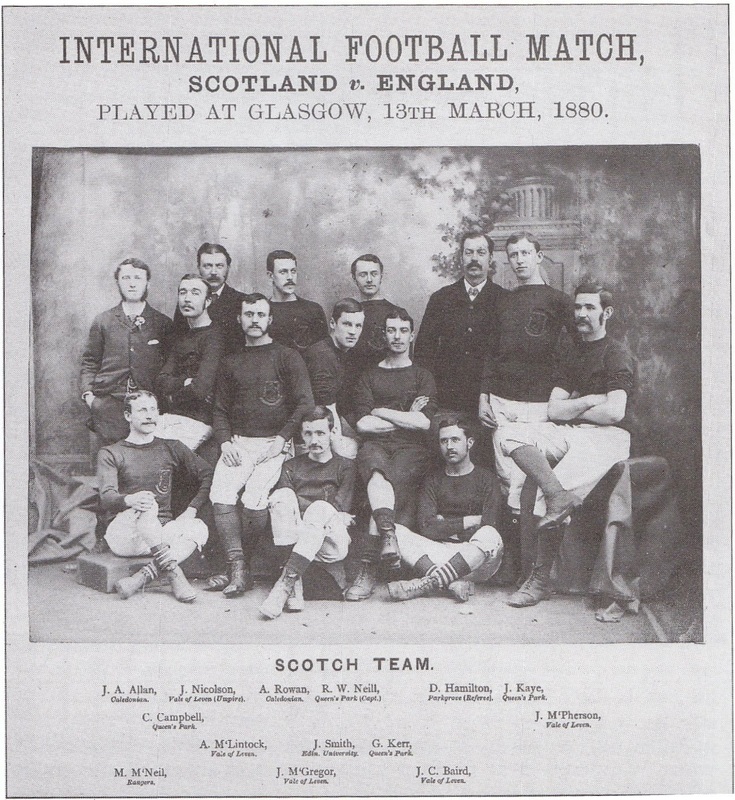
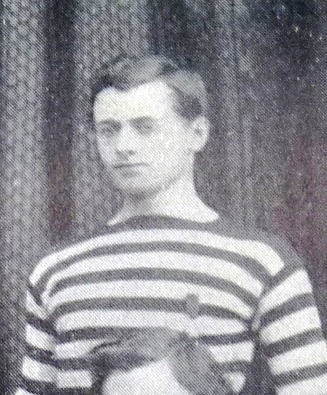
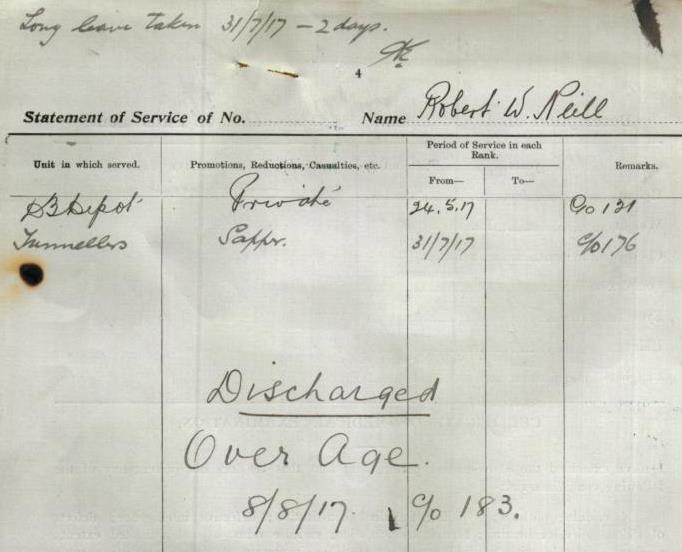
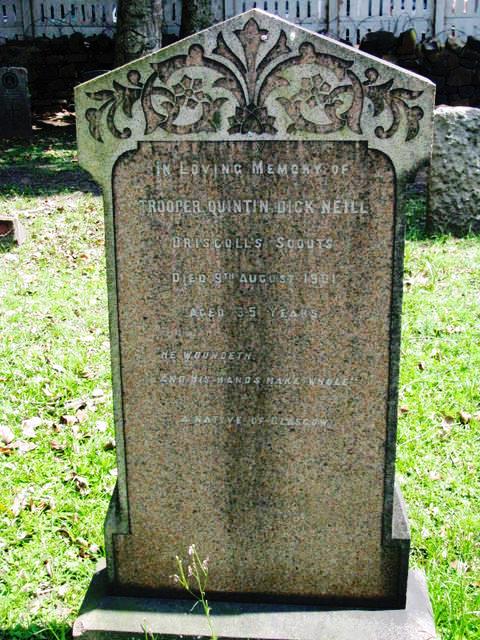
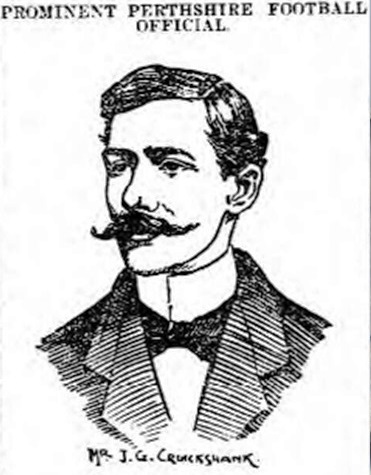
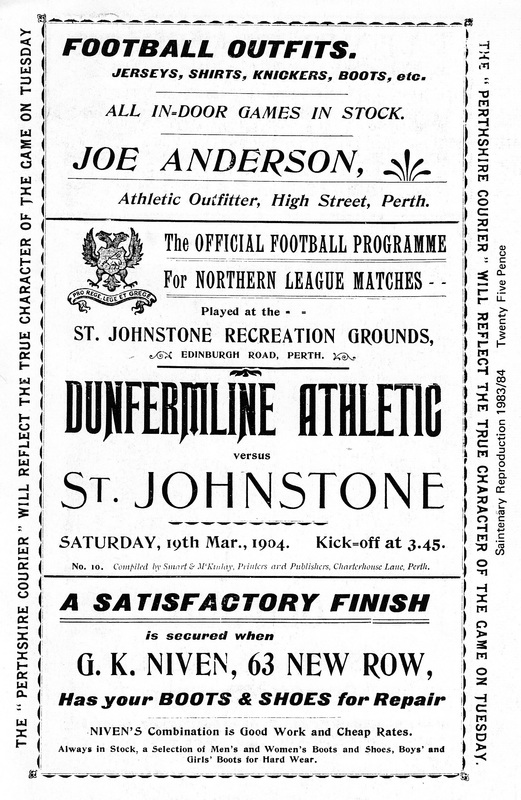
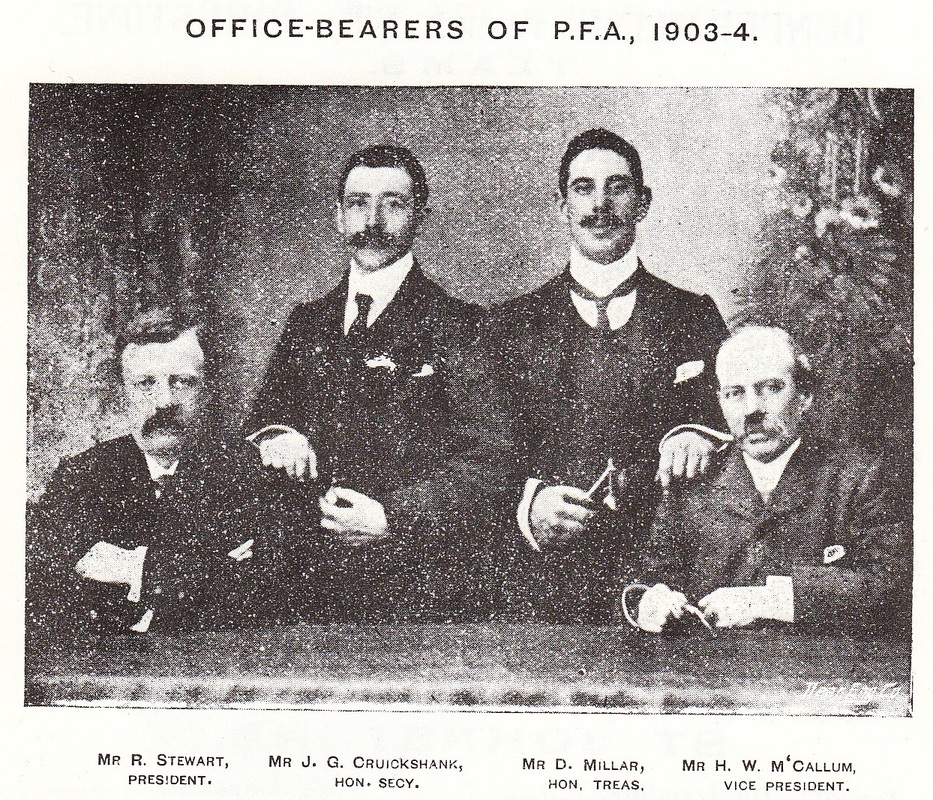
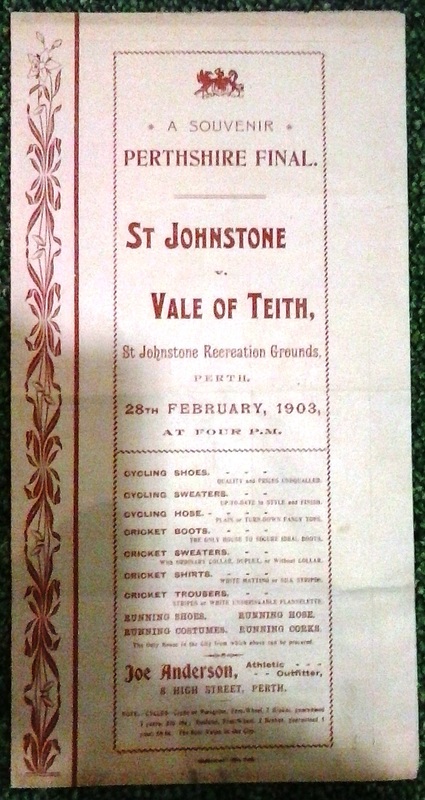
 RSS Feed
RSS Feed